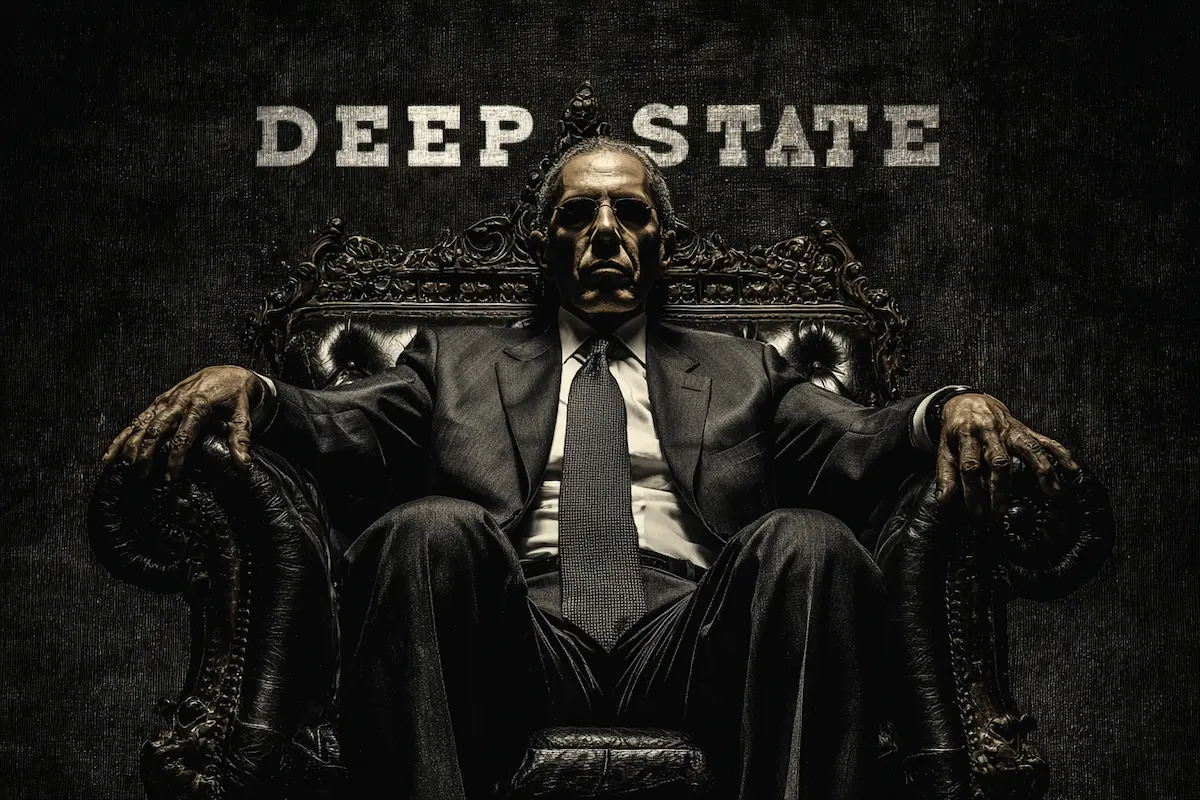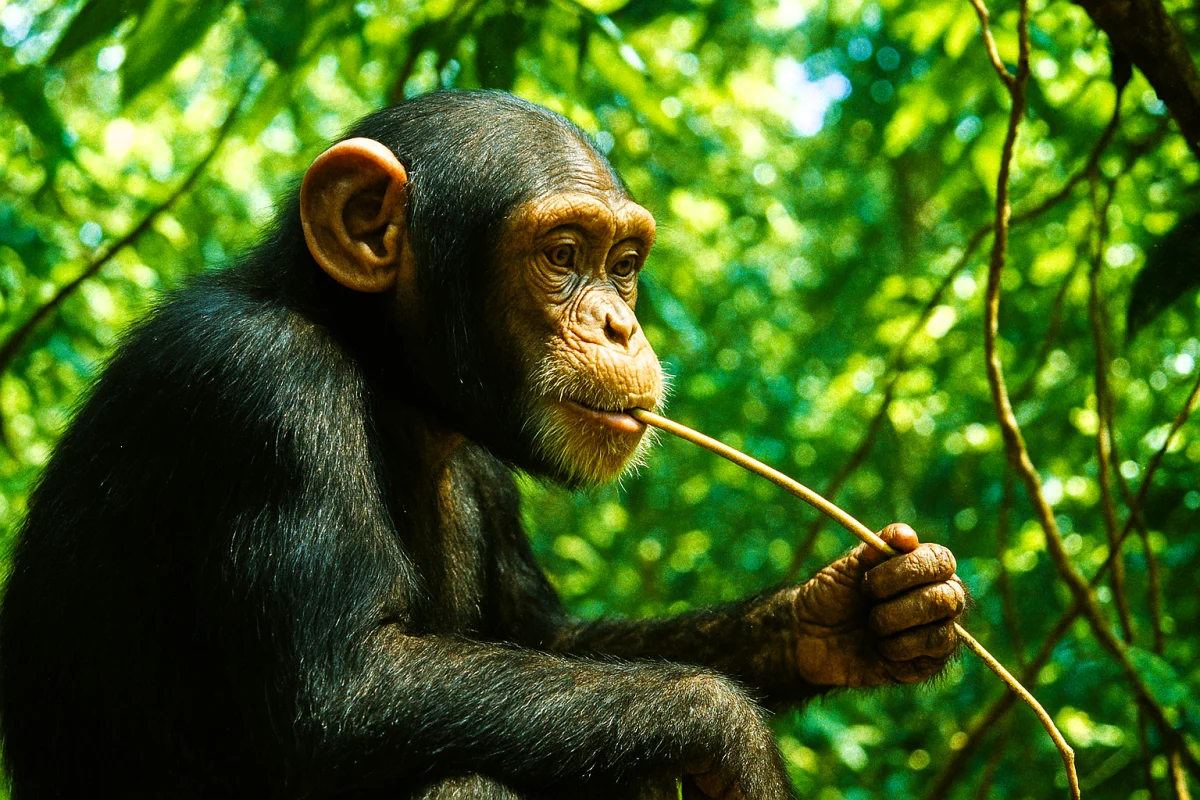The Hidden World of the Deep State – Anatomy of Covert Global Power
"Deep state" — it's a term many have heard, few truly understand. Used in political debates, conspiracy theories, talk shows, and even casual conversations, it evokes mystery and suspicion. But what does it really mean? Is it just another myth, or does an invisible power operate behind the scenes of democracy?
This article explores the origins of the deep state concept, its core elements, historical examples, and how to distinguish healthy democratic governance from shadow influence. Ready to take a look behind the curtain — into the darkness where state destinies are often shaped?

Image: ZenoFusion • AI Visuals
What Is the Deep State? A Definition Beyond the Buzzword
The "deep state" refers to an informal, covert power structure within a country that operates independently from elected officials. It doesn’t appear on ballots, but can significantly influence political decisions and national direction.
Its agents are not elected — they may include intelligence officials, military elites, entrenched bureaucrats, and powerful economic figures. Together, they hold access to key resources, secrets, and influence channels — often without public oversight.
Think of it as invisible governance: not chosen by the people, but felt through laws, policy shifts, and suppressed dissent.
Core Components – What Builds Shadow Power?
The deep state isn’t a single body or person. It’s a web of interests and actors that often includes:
- Intelligence and security agencies — legally gathering data, monitoring citizens, and occasionally leveraging that information for internal influence.
- Military structures — in some states, the military holds power that overshadows civilian leadership.
- Judicial and bureaucratic elites — long-serving officials who shape outcomes quietly behind closed doors.
- Oligarchic financial networks — the ultra-wealthy who influence politics via donations, media control, and private alliances.
These layers often overlap and reinforce each other, forming resilient, self-preserving structures that can endure changes in elected government.
Historical Cases – When the Deep State Was Real
The term gained traction in 1990s Turkey, where military, intelligence, and nationalist groups were found working together outside formal government. The Turkish phrase "derin devlet" (deep state) was born.
In Egypt, many believe the deep state resurfaced after the Arab Spring, replacing elected leaders with military-backed rule.
In the U.S., the concept surged in 2016 when Donald Trump’s supporters claimed parts of the federal government (like the FBI or CIA) were actively undermining the president. While the validity of these claims is debated, the term became a political weapon.
Sometimes the deep state is real. Other times, it’s a rhetorical tool used to invoke fear or label opposition.
Deep State vs. Conspiracy Theories – Drawing the Line
The deep state is often entangled with conspiracy narratives. Online, claims circulate that a global elite controls everything — governments, banks, medicine, even your news feed.
Some of these ideas emerge from genuine concerns — like press intimidation or surveillance. But most are exaggerated or misleading, fueled by fear and distrust.
For example, the QAnon movement in the U.S. claimed a secret Democratic cabal ruled the country. Despite its popularity, no solid evidence supported these claims.
That’s why we must differentiate between the deep state as a systemic reality and conspiracies rooted in speculation, emotion, and lack of proof. They are often confused but fundamentally different — especially in political discourse.
So while the deep state is not always a conspiracy, it is frequently weaponized as one.
Spotting the Deep State – Signs of Hidden Control
The deep state is an ideologically complex and often elusive concept. Yet despite its ambiguity, there are certain indicators that may suggest its presence in real-world governance:
- Same people, permanent power — officials who stay in key roles despite elections.
- Decisions made in private — laws shaped more by backroom deals than public debate.
- Weak judicial oversight — lack of effective checks on power.
- Suppression of critical media — press freedom under pressure signals fear of exposure.
- Corruption and crony capitalism — business success linked to political loyalty, not merit.
The deep state rarely announces itself. Instead, it’s felt in the gap between public expectation and how power truly operates.
Why It Matters – Safeguarding Democracy from the Shadows
The deep state threatens not just elected leaders, but the essence of democracy. When unelected forces steer policy, trust erodes. Citizens become spectators instead of participants. Choice loses meaning.
To protect democracy, we must ensure:
- Transparency in decision-making
- Accountability through legal and legislative systems
- Free, independent journalism
- Empowered civil society and informed citizens
Democracy isn’t automatic — it’s a value that demands defense. Our greatest weapon against shadow power is a population that understands it exists — and chooses not to look away.
Because awareness breeds control. And education creates freedom.
🧠 Awareness = Control
💡 Education = Liberation
✍ Tornike, Content Strategist at ZenoFusion – May 31, 2025
✍ Article Author
- Registered: 27 April 2025, 10:30
- Location: Georgia




 Tornike
Tornike